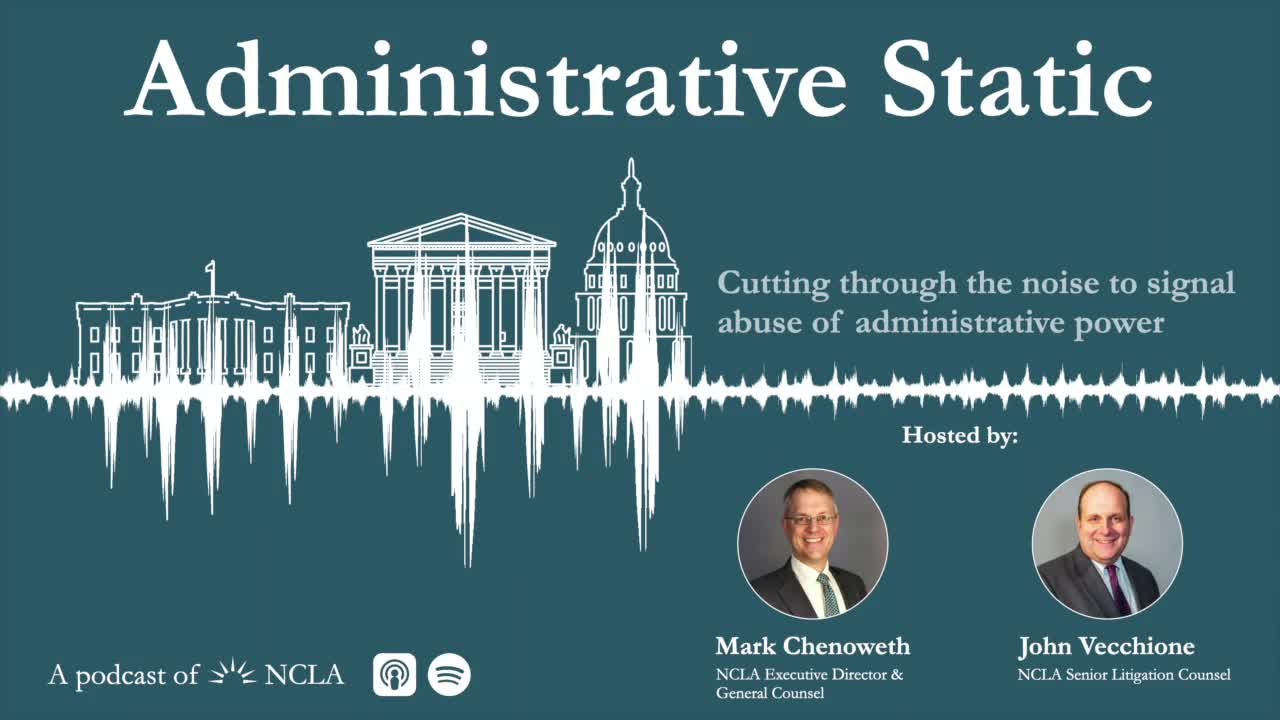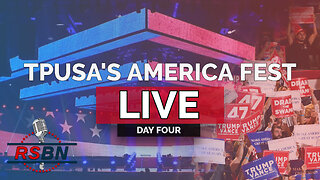Premium Only Content

THE COURT-PACKING BLITZ; JUSTICE THOMAS ON BIG TECH AND THE FIRST AMENDMENT
The Court-Packing Blitz
In this episode, Vec reacts to recent news that Democrat lawmakers are preparing to unveil legislation that would add four seats to the U.S. Supreme Court, a move that could harm the rule of law in the U.S. This comes on the heels of an executive order, signed by President Biden last week, that establishes a 36-member commission to report back within six months on possible changes to the Supreme Court’s membership, jurisdiction, and lifetime terms.
The legislation will have slim hopes of passage, with Republicans united in opposition to any effort that would upset the balance of the court, and even many Democrats reluctant to prejudge the issue while President Biden’s commission is at work.
The work of the commission and the pressure campaign from judicial activists could, however, be intended as a shot across the bow to influence the deliberations of the Supreme Court. The proposals to apply term limits or adding justices to the Supreme Court would require a constitutional amendment. The judiciary should remain independent.
Supreme Court justices are appointed by the president rather than elected by the people, and once confirmed by the Senate, they owe no allegiance to any person or party. Their only allegiance is to the Constitution. The president can’t replace them at will like a political appointee; justices can only be replaced when they retire, die, or are impeached and removed from office for cause.
Justice Thomas on Big Tech and the First Amendment
Later in the episode, Mark dissects Justice Thomas’s latest concurring opinion in Biden v. Knight First Amendment Institute at Columbia University, a lawsuit in which a lawyer alleged President Trump violated the Constitution in blocking this individual from @realdonaldjtrump on Twitter. The case was dismissed as moot by the U.S. Supreme Court on April 5th.
Justice Thomas points out that “public forum” law does not fit well with online platforms. He then outlines two other doctrines that have a long legal history of application to private businesses: “common-carrier law” and “public accommodation law.”
Justice Thomas, concurring: “The Second Circuit feared that then-President Trump cut off speech by using the features that Twitter made available to him. But if the aim is to ensure that speech is not smothered, then the more glaring concern must perforce be the dominant digital platforms themselves. As Twitter made clear, the right to cut off speech lies most powerfully in the hands of private digital platforms. The extent to which that power matters for purposes of the First Amendment and the extent to which that power could lawfully be modified raise interesting and important questions. This petition, unfortunately, affords us no opportunity to confront them.”
-
 10:23
10:23
New Civil Liberties Alliance
1 year agoMark Chenoweth on Judge Newman v. Judge Moore
54 -
 LIVE
LIVE
Right Side Broadcasting Network
10 days agoLIVE REPLAY: President Donald J. Trump Keynotes TPUSA’s AmFest 2024 Conference - 12/22/24
5,662 watching -
 4:31
4:31
CoachTY
21 hours ago $21.53 earnedCOINBASE AND DESCI !!!!
113K9 -
 10:02
10:02
MichaelBisping
20 hours agoBISPING: "Was FURY ROBBED?!" | Oleksandr Usyk vs Tyson Fury 2 INSTANT REACTION
57K13 -
 8:08
8:08
Guns & Gadgets 2nd Amendment News
2 days ago16 States Join Forces To Sue Firearm Manufacturers Out of Business - 1st Target = GLOCK
91K86 -
 10:17
10:17
Dermatologist Dr. Dustin Portela
2 days ago $17.45 earnedOlay Cleansing Melts: Dermatologist's Honest Review
132K12 -
 1:02:20
1:02:20
Trumpet Daily
2 days ago $41.37 earnedObama’s Fake World Comes Crashing Down - Trumpet Daily | Dec. 20, 2024
89.9K58 -
 6:29
6:29
BIG NEM
1 day agoCultivating God Mode: Ancient Taoist NoFap Practices
66.6K17 -
 30:53
30:53
Uncommon Sense In Current Times
2 days ago $10.87 earned"Pardon or Peril? How Biden’s Clemency Actions Could Backfire"
80.7K5 -
 40:01
40:01
CarlCrusher
1 day agoSkinwalker Encounters in the Haunted Canyons of Magic Mesa - ep 4
74.7K9